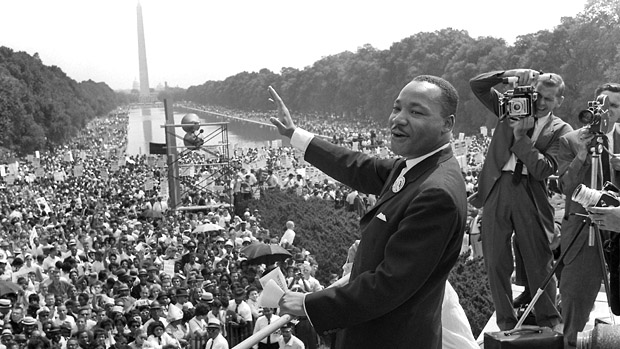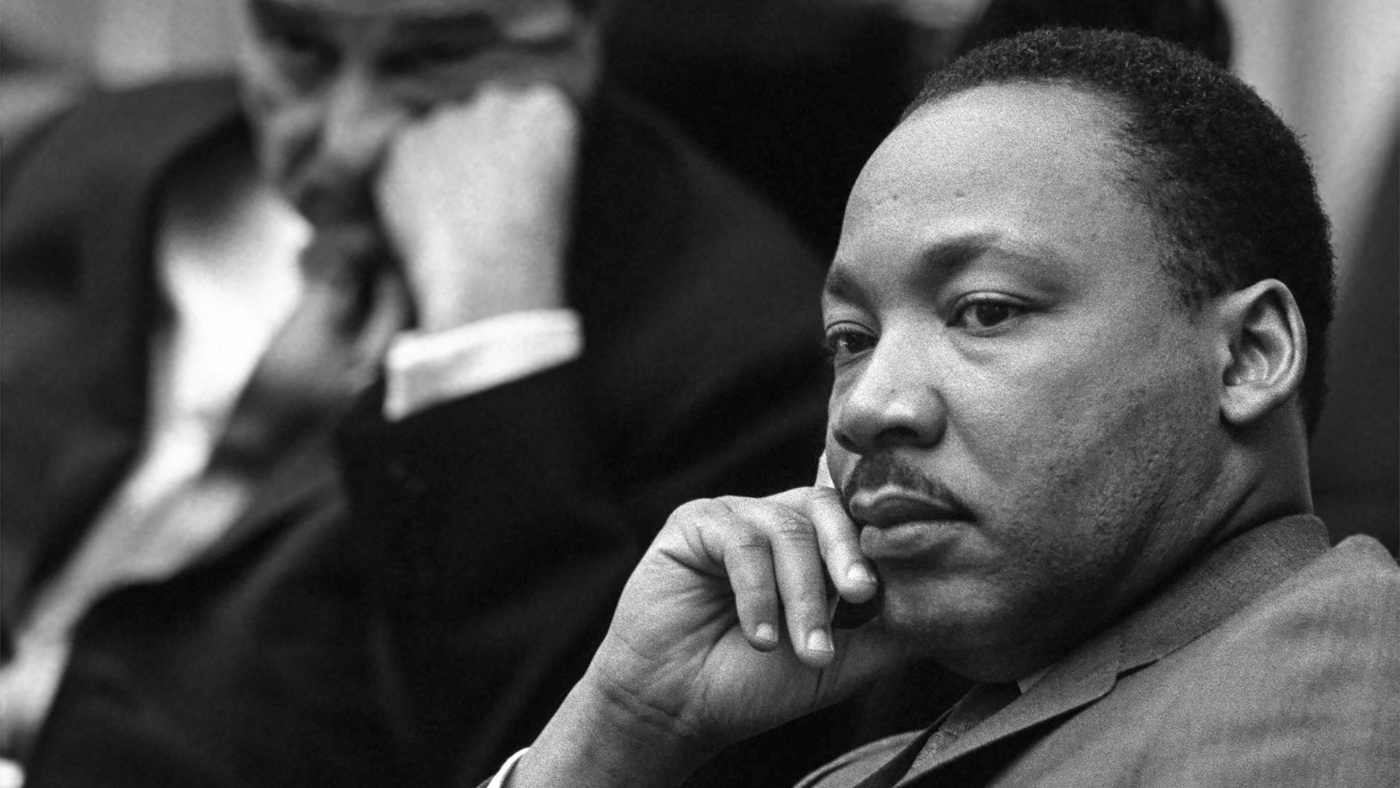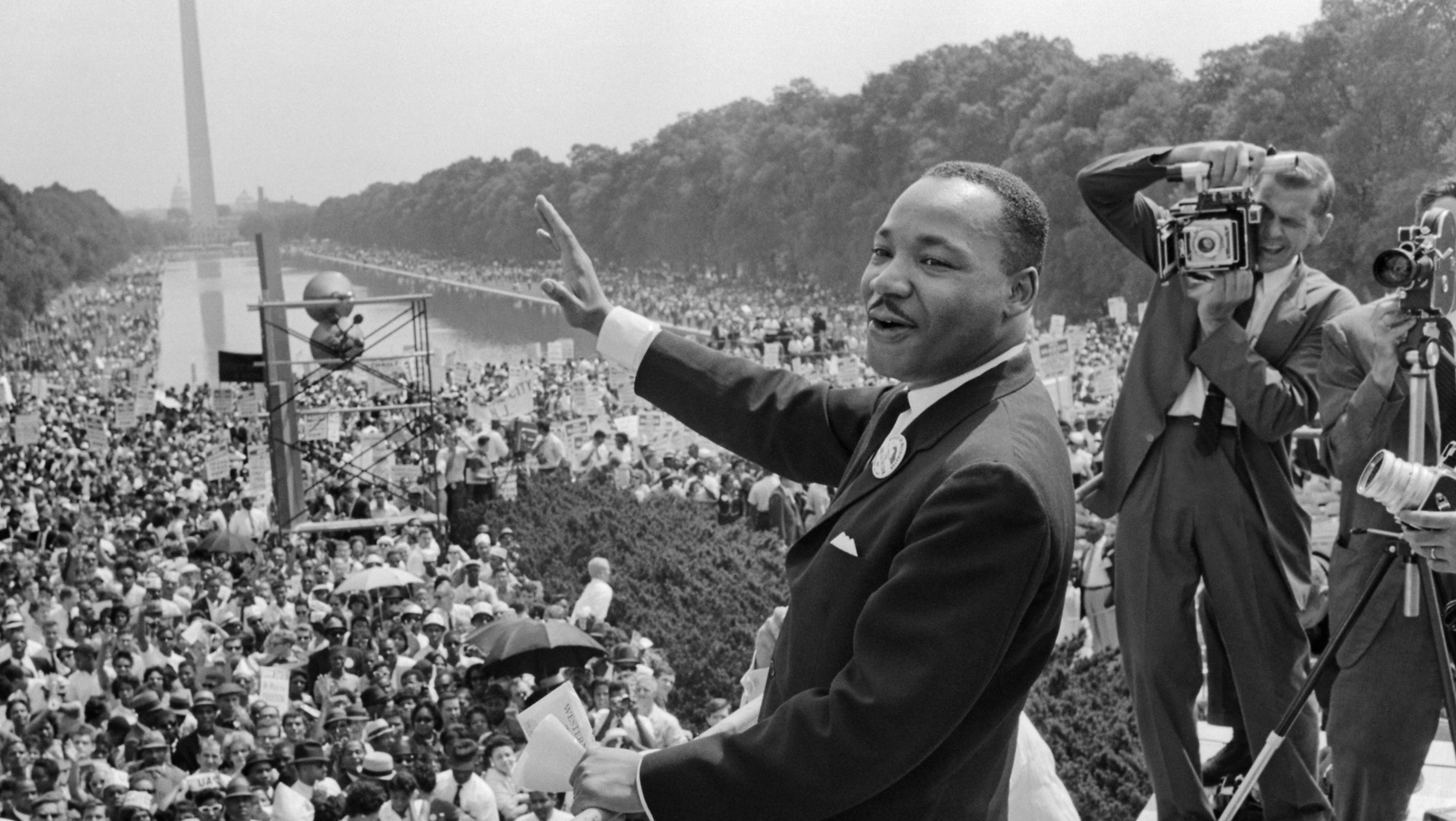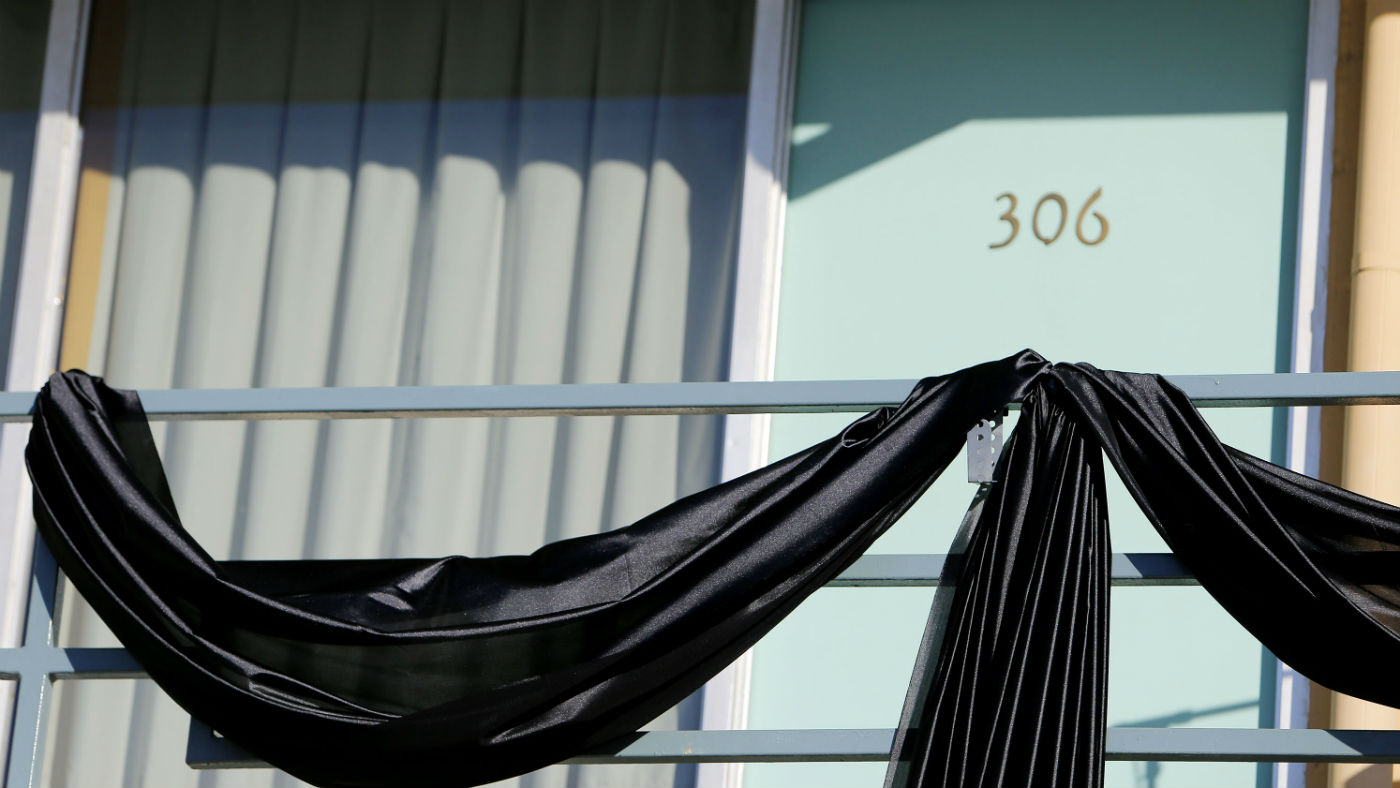MLK Day: who was Martin Luther King?
It's Martin Luther King Day - an American public holiday in honour of the civil rights campaigner

A free daily email with the biggest news stories of the day – and the best features from TheWeek.com
You are now subscribed
Your newsletter sign-up was successful
Martin Luther King day, often abbreviated to MLK Day, is a public holiday in the United States, falling on the thrid Monday of January.
It celebrates the life and work of Dr King, the civil rights campaigner who dreamed of a future in which his children would not be judged by the colour of their skin.
Who was Martin Luther King?
The Week
Escape your echo chamber. Get the facts behind the news, plus analysis from multiple perspectives.

Sign up for The Week's Free Newsletters
From our morning news briefing to a weekly Good News Newsletter, get the best of The Week delivered directly to your inbox.
From our morning news briefing to a weekly Good News Newsletter, get the best of The Week delivered directly to your inbox.
MLK came to prominence during the Montgomery Bus Boycott of 1955, which was inspired by the arrest of Rosa Parks. Born Michael King in 1929, his father later changed his name in honour of the 16th-century Christian reformer Martin Luther. He was a Baptist pastor by the age of 25 and advocated non-violent protest, having been inspired by Mahatma Gandhi.
What was MLK's dream?
Martin Luther King is best known for his "I have a dream" speech, in which he dreamed of a future where his children would "one day live in a nation where they will not be judged by the color of their skin but by the content of their character". It has become one of the most famous speeches in history is regarded as a milestone in the development of the civil rights movement.
MLK gave his speech outside the US capital on 28 August 1963, during the March on Washington for Jobs and Freedom. It had been planned partly to show support for President John F Kennedy's proposed civil rights bill, but the BBC reports that the authorities were terrified of what might happen at the protest. There was a huge mobilisation of security forces, with the army on standby and judges waiting in local courthouses. There was even a ban on the sale of alcohol in Washington for the first time since Prohibition.
A free daily email with the biggest news stories of the day – and the best features from TheWeek.com
How did the speech go?
MLK's speech was to be based on the Gettysburg address, but it did not go according to plan. "Wearied by the suffocating heat, the crowd's initial response was muted," writes Nick Bryant of the BBC, who notes that King's name appeared well down the running order of speakers. "The speech was not going well," he says. It took the intervention of gospel singer Mahalia Jackson to change the course of the address. She heckled King from the side of the stage, shouting: "Tell 'em about the dream, Martin." It was a reference "to a rhetorical riff that King had used several times before, but which had not made it into his prepared speech," explains Bryant.
What happened next?
King had been using the "dream" theme for well over a year, explains Gary Younge in The Guardian. "Throughout 1963 King made a speech a day. His other commitments precluded him from crafting a bespoke address for each occasion. Instead he would weave together previously used riffs, anecdotes and metaphors – both biblical and secular – to frame a particular argument or desscribe a specific situation." What came next has been described as "one of the most important orations in American history."
What was the impact of the speech?
"He's damned good, said President Kennedy, who was watching it on TV in the Oval Office. He even quoted "I have a dream" back to MLK when they met later in the day. "King had made a compelling case for non-violent racial change, and done so with such eloquence and power that it reverberated not only on Washington's Mall, but also in the living rooms of white Americans," says Bryant, who notes that the civil rights bill passed the following year. Younge agrees. "Almost everyone, including even King's enemies, recognised the speech's reach and resonance," he says. FBI assistant director William Sullivan was moved to call King "the most dangerous Negro" in the country.
What happened to Martin Luther King?
Having been catapulted into the public eye, King continued to fight for civil rights and he also became a vocal critic of the Vietnam War. He was assassinated in April 1968 on the balcony of his hotel room in Memphis where he was campaigning on behalf of black sanitary public works employees. His death sparked riots around the country.
James Earl Ray was convicted of his murder, dying in prison in 1998. Martin Luther King Jnr Day is now a federal holiday observed on the third Monday of January each year.
-
 Film reviews: ‘Wuthering Heights,’ ‘Good Luck, Have Fun, Don’t Die,’ and ‘Sirat’
Film reviews: ‘Wuthering Heights,’ ‘Good Luck, Have Fun, Don’t Die,’ and ‘Sirat’Feature An inconvenient love torments a would-be couple, a gonzo time traveler seeks to save humanity from AI, and a father’s desperate search goes deeply sideways
-
 Political cartoons for February 16
Political cartoons for February 16Cartoons Monday’s political cartoons include President's Day, a valentine from the Epstein files, and more
-
 Regent Hong Kong: a tranquil haven with a prime waterfront spot
Regent Hong Kong: a tranquil haven with a prime waterfront spotThe Week Recommends The trendy hotel recently underwent an extensive two-year revamp
-
 ‘Martin Luther King’s warning of the white moderate rings truer than ever’
‘Martin Luther King’s warning of the white moderate rings truer than ever’Instant Opinion Your digest of analysis from the British and international press
-
 Why is an American city divided over ‘Martin Luther King Jr. Boulevard’?
Why is an American city divided over ‘Martin Luther King Jr. Boulevard’?In Depth Civil rights activist’s name removed from Kansas City street after public vote
-
 Martin Luther King’s assassination 50 years on: who shot him and where was he killed?
Martin Luther King’s assassination 50 years on: who shot him and where was he killed?Speed Read 4 April marks a half century since the civil rights leader was gunned down in Memphis